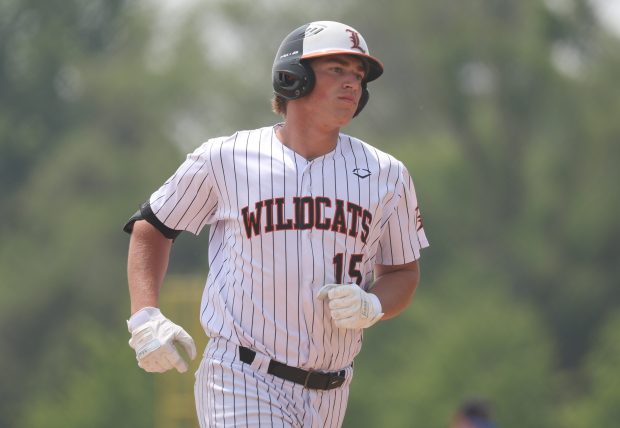As Aurora gears up for its second annual Lumenaura Festival, the city is considering hiring a consultant to help develop and manage the event.
Lumenaura, a free “interactive light and sound experience,” will this year be held Oct. 10 to 26 in downtown Aurora, according to the city’s webpage on the festival. While many of the art displays will be up that entire time, the Oct. 10 to 12 weekend will also include live music, food vendors and other entertainment.
Last year, Aurora managed its own contracts for festival art installations, but for this year’s festival the city is looking to consolidate that down to one contract with a partner organization that can manage the art displays. That’s according to Director of Community Services Chris Ragona, who gave a presentation on last year’s festival, early plans for this year’s festival and the recommended new consultant to both the Aurora City Council’s Finance Committee and Committee of the Whole at recent meetings.
Aurora received a number of proposals, but city staff recommended GNV Urban Art to be the consultant on Lumenaura this year.
Ragona said at the May 29 Finance Committee meeting that GNV had the most comprehensive proposal as well as experience in producing events not only in the U.S. but also internationally.
Last year, the Lumenaura Festival cost around $570,000, though the city did receive a roughly $190,000 state grant to help with the costs, he said.
This year, Aurora is looking to spend at most $550,000 on the festival, which includes a $415,000 contract with GNV Urban Art.
The city already has $42,000 in sponsorships and is looking for more to help pay for the festival, Ragona said, and the city may also be getting a $200,000 grant to further reduce the cost.
While the festival likely won’t be financially self-sufficient this year, the future goal is for it to eventually not need city funds, he said.
Under the proposed contract, GNV would manage festival logistics, site operations, major art installations, roving performers and marketing, Ragona’s presentation showed.
Aurora still would do its own marketing for the festival, Ragona said. Plus, the city would plan live entertainment and roving performances for the main weekend of the festival, which also would have food vendors and giveaways, according to a staff report about the proposed contract.
Early plans for the festival have major art installations at The Mayan on Benton Street, on River Street, on New York Street, at Mundy Park near City Hall, at Water Street Square, at the Grand Army of the Republic Military Museum, at the Paramount Promenade, and on Water Street Mall, a map in Ragona’s presentation showed.
Some of the proposed art installations for the festival, he said, may include a projection map on the Grand Army of the Republic Military Museum, a laser show, an LED bonfire, an interactive light and sculpture garden in Mundy Park, a pixel starscape covering Water Street Mall, an interactive laser display that would react to nearby attendees’ dance moves and more.
GNV would be working with artists potentially from around the country or beyond on the main “anchor” art installations of the festival, Ragona said at the June 3 Committee of the Whole meeting.
The contract with GNV was recommended for approval by the Finance Committee. At a later meeting, the Committee of the Whole placed the contract on the consent agenda of the Aurora City Council’s June 10 meeting.
The consent agenda is typically used for routine or non-controversial items that are all approved with a single vote and often without discussion.
Last year’s festival drew an estimated 15,000 during just its main weekend, and more than 40% likely came from out of town, according to Ragona.
From the first-ever Lumenaura Festival, areas for improvement were identified through surveys sent to attendees, local businesses and artists who had installations at the festival, he said.
Some of these recommendations included more marketing and promotion, a larger variety of live entertainment, more spread out art installations and better signage, among other things, Ragona’s presentation showed.
He highlighted a number of decisions that were made when designing early plans for this year’s festival that were based on that feedback, and he also said the city would be looking at what did and didn’t work last year, particularly around marketing and promotion.
rsmith@chicagotribune.com



